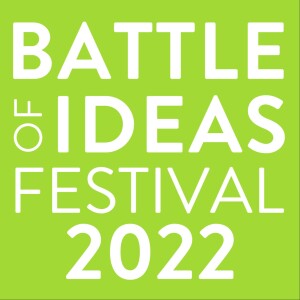
Monday Nov 04, 2024
Identity politics: just skin deep?
Recorded at the Battle of Ideas festival 2022 on Sunday 16 October at Church House, London.
ORIGINAL INTRODUCTION
Identity politics is ubiquitous in Western public life today and the subject of much vexed debate – and even something of a backlash. Many fear it threatens democracy, liberalism and free speech. However, its supporters suggest that the twenty-first-century identitarian is simply the latest version of those activists who demanded women’s or black liberation in the 1960s. Economic forecasts suggest unprecedented threats to livelihoods and prosperity, with material deprivation and immiseration a real possibility for millions. Yet many political activists seem more concerned with demands that our identities are acknowledged by others as core to who we are.
Left/right ideological political battles appear to have been usurped by internecine warfare between competitive personalised identities, checking each other’s privilege. As an ever-expanding number of groups demand that their specific ‘protected characteristics’ should be covered by equality legislation, it seems that the trend towards fragmentary identity is now a given way of fighting discrimination.
Yet many who are hostile to such ‘oppression Olympics’ – and happily lampoon, for example, the vast array of genders to choose from or change to – often ape this identitarian trend themselves. Take the way that championing the white working class – or complaining that they have been left behind – is so often a mirror image of the politicisation of racial identity and victimhood. In his book, The Identity Myth, David Swift claims the ‘right-wing invocation of “white working-class boys” is useful for culture war nonsense, but does not translate into a desire to ensure they are well fed’.
Can the politics of solidarity and the ideal of universalism survive a society divided into often competing and increasingly fragmented identity groups? Can the historical, more humanistic identities that once gave meaning to people’s lives – from institutions such as the family, class and nation to political movements for change – be reconstituted? Are critiques of identitarianism an overreaction to what might be understood as the self-empowerment of those previously marginalised excluded groups? Are we defined by the group we ‘belong’ to or do our experiences and choices make us who we are? What does identity mean today?
SPEAKERS
Shaun Bailey
London-wide assembly member; former Conservative candidate for Mayor 2021; youth worker; co-founder, My Generation
Iona Italia
editor-in-chief, Areo Magazine; author, Anxious Employment; host, Two for Tea podcast
Fraser Myers
deputy editor, spiked; host, The spiked podcast
David Swift
historian; author, The Identity Myth and A Left for Itself
Peter Whittle
founder and director, New Culture Forum
CHAIR
Manick Govinda
guest co-curator, Culture Tensions, Ujazdowski Castle Centre for Contemporary Art, Warsaw, Poland
No comments yet. Be the first to say something!